The Chicago Area Schweitzer Fellowship, a year-long service learning program that empowers aspiring health professionals to design and direct innovative community service projects, today announced its newest class of Fellows. The thirty exceptional graduate students selected for the Fellowship proposed impactful community-based projects to address the health needs of underserved Chicagoans.
Named in honor of famed humanitarian and Nobel laureate Dr. Albert Schweitzer, the Chicago Area Schweitzer Fellows Program encourages students to become lifelong leaders in service by helping to address unmet health needs among vulnerable Chicagoland residents. In collaboration with existing community organizations, each Schweitzer Fellow will launch a community-based project, providing 200 hours of service. Using a broad public health lens, the new Fellows will work to improve community wellbeing and target the social determinants of health—the conditions in which people are born, grow, live, work, and age that have a profound impact on health and quality of life. Projects include:
- Establishing a movement therapy program to support women transitioning out of homelessness
- Providing dental care and oral health information for veterans
- Launching a trauma-informed wellness program for survivors of domestic violence
The 2017-18 Schweitzer Fellows represent 11 area universities and a diversity of health professions and public service fields including medicine, public health, nursing, art therapy, and optometry. Through this interdisciplinary approach, the Program exposes students to real-world inter-professional, collaborative care.
“Upon learning about the Schweitzer Fellowship, I knew that this was an opportunity that I couldn’t let pass by,” shared Fellow Maryclaret Ndubuisi-Obi, a nursing student at the DePaul University School of Nursing. “I wanted to be a part of a community of inter-professional students who desired to integrate service into their path as lifelong learners—a community of individuals with a committed intent to fully experience a life fueled by an active engagement in service and leadership now rather than later. I was drawn to the Fellowship because of its emphasis on growth and mentorship of the Fellow as well as the promotion of health within underserved populations.”
Ndubuisi-Obi and her peers were selected through a highly competitive application process that saw submissions from almost 100 area graduate students. In addition to their service projects, the Fellows will also participate in a thirteen-month Program that includes monthly meetings, trainings, and ongoing opportunities for interdisciplinary collaboration. They will also receive support from a team of mentors from their schools and project sites as well as mentors from our alumni network and the Schweitzer Fellowship Advisory Council which oversees the program.
“In the face of ongoing uncertainty in our health care system and increased threats to our most vulnerable citizens, the role of our Schweitzer Fellows as ambassadors of hope is more important than ever,” said Dr. Arthur Kohrman, chair of the Advisory Council and a board member at Health & Medicine Policy Research Group, the non-profit health policy center that administers the Chicago Fellowship. “The Schweitzer Fellowship brings the creative ideas and energy of these remarkable students to underserved communities. In so doing, the Fellows are not only helping the communities address their present needs, they are becoming the next generation of leaders in service.”
The new Fellows join a network of over 550 Chicago Program alumni who have provided over 110,000 hours of community service to more than 150 community groups over the course of the Program’s 22-year history.
“We are so proud of the Schweitzer Program’s extraordinary legacy of service and are thrilled to welcome this new cohort of inspiring Fellows,” said Margie Schaps, Executive Director of Health & Medicine. “This sort of community impact is only possible through the steadfast commitment of the many individuals, academic institutions, and local foundations that support this program including the Baxter International Foundation, the Michael Reese Health Trust, and the VNA Foundation. We are deeply grateful for their generosity as we welcome this dynamic group of Fellows to the Schweitzer community.”
